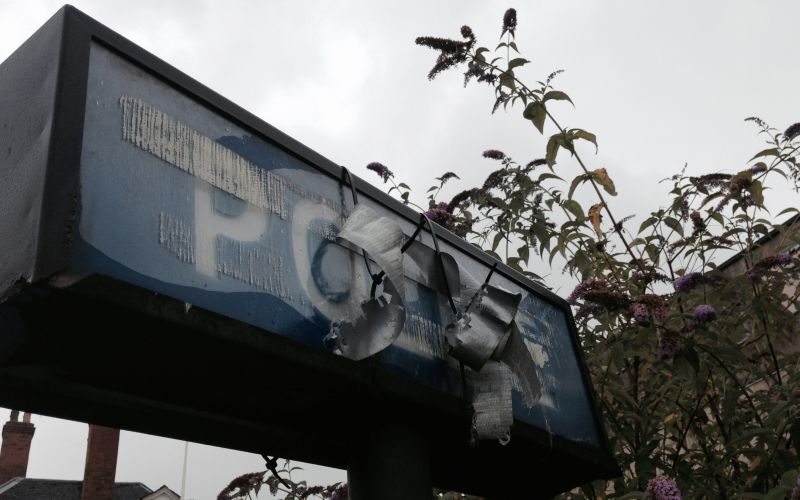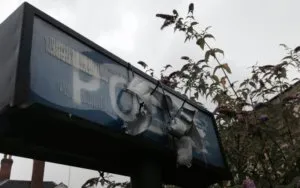Neighbours are by far the most frequent perpetrators of disability hate crime in London, a new report by a disabled people’s organisation has found.
The report by Inclusion London found that neighbours accounted for more than half of the cases examined in 2022.
It also found that, where a location was recorded, two-thirds of disability hate crimes in 2022 happened at the disabled person’s home.
The most common hate crimes were verbal abuse, and persistent harassment.
The report is based on nearly two years of data – and 343 cases between July 2021 and March 2023 – from six disabled people’s organisations (DPOs) that have supported victims of hate crime in London.
Nearly half of these victims said they did not want to involve the police.
The most frequent reason was that they did not believe they had enough evidence, but significant numbers said they were afraid of the authorities, did not trust the police, or said the police had previously not believed them when they reported a crime.
The report says the research shows the need for long-term funding for community-based organisations to run support and advocacy programmes, with hate crime cases “very time intensive”, and two hate crime projects run by DPOs forced to close in the last year.
The report says that “securing funding to support victims remains an area of great difficulty”.
It highlights the importance of providing long-term emotional support for hate crime victims in many cases.
Although the report says increasing the number of disability hate crimes reported to the police is important, it also stresses that many victims “experience profound trauma and distress” and so DPOs can “play an indispensable role, providing ongoing emotional support and comprehensive, holistic services that foster recovery”.
It also says that disabled victims face inaccessible systems and services throughout the criminal justice system after they report a crime, and often experience multiple barriers.
Inclusion London said the report shows that more work is needed to improve disabled people’s trust in reporting disability hate crime to the police.
A report published 18 months ago by the London Deaf and Disabled People Organisations’ Hate Crime Partnership, which was led by Inclusion London, found the Metropolitan Police Service guilty of repeatedly failing disabled people who tried to report disability-related hate crime, with police officers dismissing allegations, or downgrading them to anti-social behaviour.
Among its future work, Inclusion London now plans to work directly with organisations that support victims who are Deaf, have chronic or energy-limiting conditions, and those with mental distress and trauma, as these groups have so far not been the focus of disability hate crime research.
Louise Holden, Inclusion London’s hate crime partnership project manager, said: “From the report, we know that disabled victims are in desperate need of localised services that offer holistic services to support with the consequences of being targeted.
“It was not a surprise to learn that nearly half of victims didn’t want to report to the police.
“There needs to be more understanding of the importance of supporting victims, even if they don’t want to report.”
She added: “If they are supported by their local DDPO* as a third party reporting centre, they are more likely to feel like something is being done, rather than having the case closed due to lack of evidence with nowhere else to turn to for support.”
*Deaf and disabled people’s organisation
A note from the editor:
Please consider making a voluntary financial contribution to support the work of DNS and allow it to continue producing independent, carefully-researched news stories that focus on the lives and rights of disabled people and their user-led organisations.
Please do not contribute if you cannot afford to do so, and please note that DNS is not a charity. It is run and owned by disabled journalist John Pring and has been from its launch in April 2009.
Thank you for anything you can do to support the work of DNS…

 Ministers are considering further extension to disability hate crime laws, after pledge on ‘aggravated’ offences
Ministers are considering further extension to disability hate crime laws, after pledge on ‘aggravated’ offences ‘We will not give a single inch,’ disabled activists vow, as Kendall publishes disability cuts bill
‘We will not give a single inch,’ disabled activists vow, as Kendall publishes disability cuts bill ‘Real danger’ that disabled people will not benefit from £39 billion for social and affordable homes
‘Real danger’ that disabled people will not benefit from £39 billion for social and affordable homes